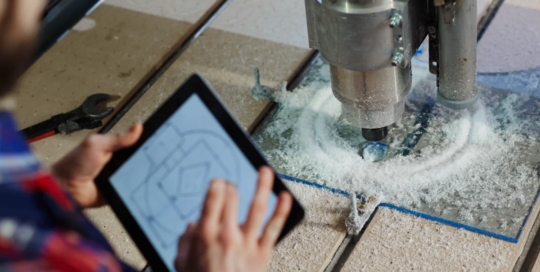Design or plan protocols for equipment or processes to produce products meeting internal and external purity, safety, and quality requirements.
Biochemical engineers
2025-07-31T20:27:04-06:00Develop usable, tangible products, using knowledge of biology, chemistry, or engineering. They solve problems related to materials, systems, or processes that interact with humans, plants, animals, microorganisms, or biological materials.
Petroleum engineers
2025-07-31T20:26:59-06:00Devise methods to improve oil and gas extraction and production and determine the need for new or modified tool designs. They oversee drilling and offer technical advice.
Nuclear engineers
2025-07-31T20:26:46-06:00Conduct research on nuclear engineering projects or apply principles and theory of nuclear science to problems concerned with release, control, and use of nuclear energy and nuclear waste disposal.
Mining and geological engineers, including mining safety engineers
2025-07-31T20:26:40-06:00Conduct sub surface surveys to identify the characteristics of potential land or mining development sites. They specify the ground support systems, processes and equipment for safe, economical, and environmentally sound extraction or underground construction activities. They inspect areas for unsafe geological conditions, equipment, and working conditions.
Automotive engineers
2025-07-31T20:26:27-06:00Develop new or improved designs for vehicle structural members, engines, transmissions, or other vehicle systems, using computer assisted design technology. They direct building, modification, or testing of vehicle or components.
Fuel cell engineers
2025-07-31T20:26:25-06:00Design, evaluate, modify, or construct fuel cell components or systems for transportation, stationary, or portable applications.
Mechanical engineers
2025-07-31T20:25:22-06:00Perform engineering duties in planning and designing tools, engines, machines, and other mechanically functioning equipment. They oversee installation, operation, maintenance, and repair of equipment such as centralized heat, gas, water, and steam systems.
Materials engineers
2025-07-31T20:25:13-06:00Evaluate materials and develop machinery and processes to manufacture materials for use in products that must meet specialized design and performance specifications. They develop new uses for known materials. This includes working with graphite, metal and metal alloys, ceramics and glass, plastics and polymers, and naturally occurring materials.
Marine architects
2025-07-31T20:25:11-06:00Design and oversee construction and repair of marine craft and floating structures such as ships, barges, tugs, dredges, submarines, torpedoes, floats, and buoys. They confer with marine engineers.









